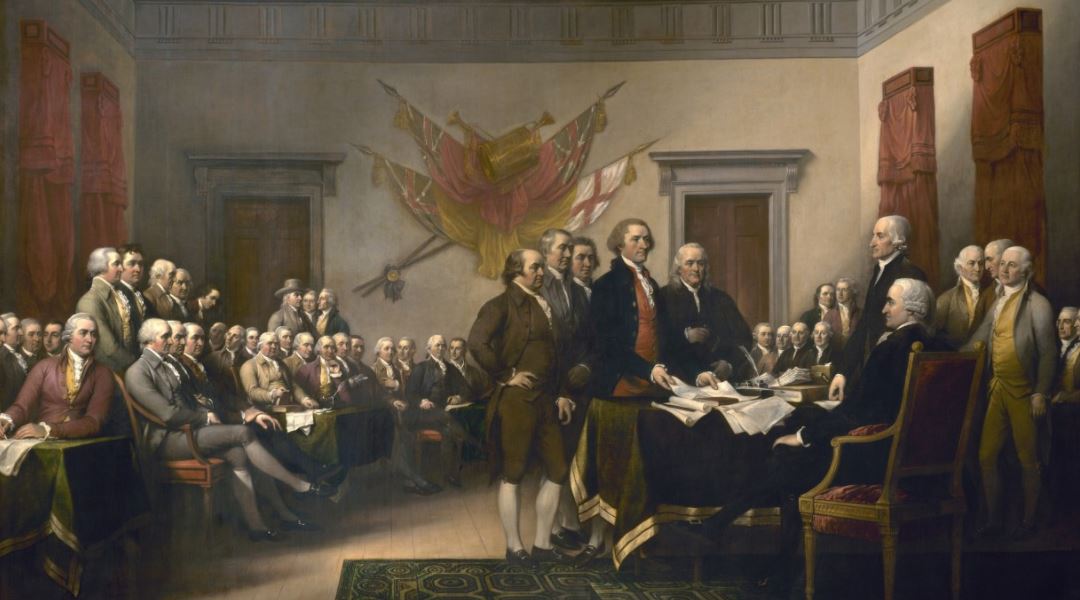Domestic Policies
Agricultural
Thomas Jefferson was a Democratic-Republican, and his election in 1800 resulted in a power shift away from previous Federalist administrations. His primary objective as president was to advance political democracy and physically expand the country to provide land for a nation of citizen farmers. His ideal citizen was a yeoman, or self-sufficient farmer, rather than one who relied on wages from an employer. (Jefferson admired skilled artisans and tradespeople as well, classifying them alongside the yeomen.) According to Jefferson, political democracy could only arise from an economically self-sufficient citizenry. To accomplish these goals, he sought to reduce the executive branch—not out of a dislike for government per se, but rather out of concern that a strong central government would benefit only the wealthy and powerful as had occurred in the United Kingdom.
During his two terms as president—he was reelected in 1804). Jefferson reversed the Federalist party’s policies by opposing urban commercial development. Rather than that, he promoted agriculture by selling small, affordable parcels of western public land. Perhaps the most incredible legacy of Jefferson is his vision of an “empire of liberty.” He despised cities and envisioned a rural republic populated by land-owning white men or Republican yeomen. A global breadbasket exporting agricultural products without succumbing to urbanization and industrialization’s ills, he desired. Because American yeomen would own their land, they would be able to defend themselves against those who might attempt to buy their votes through property promises.
Limited Government
Jefferson fought for state rights and insisted on a limited federal government with little taxation. They contrasted sharply with the Federalists’ insistence on a stable and active federal government. Jefferson was also a proponent of fiscal austerity. He pushed for the abolition of all internal taxes, including whiskey and rum, which Congress approved. The most significant reductions to the federal budget came at the expense of the military; Jefferson did not believe in maintaining an expensive army and slashed the size of the navy Adams had worked to build. Nonetheless, Jefferson responded to pirates’ capture of American ships and sailors off the coast of North Africa in 1801 by leading the United States into war against the Muslim Barbary States, the first conflict fought by Americans.
Education
Jefferson was a staunch supporter of education, and in 1806 he introduced a bill into Congress that would legalize federal funding for public education. Because Congress failed to pass it, Jefferson gave it to his home state of Virginia for incorporation into their constitution. Jefferson devised a logical educational system that included elementary, high school, and college levels. He had six educational goals that he hoped would result in all people becoming “productive and informed voters” by achieving the following:
- Allowing individuals to conduct their own business,
- Allowing individuals to express their own opinions and ideas in writing
- Through reading, they can strengthen their minds and faculties.
- Permitting individuals to comprehend their responsibilities and those of their neighbors,
- Educating people about their rights and how to exercise them, and
- Assisting individuals in applying their knowledge in their social lives.
Foreign Policy
Who tore Jefferson’s foreign policy between his desire for expansion and the imperative of avoiding war with France, Britain, and Spain? The slave revolution in Haiti and Napoleon’s efforts to recapture the island complicated his administration’s diplomatic and geopolitical position. It resulted in his government purchasing the Louisiana Territory from France in 1803 (which included the entire area drained by the Mississippi and its tributaries up to the crest of the Rocky Mountains). Additionally, Jefferson attempted unsuccessfully to incorporate Spanish Florida (including the Gulf Coast west to Louisiana) into the Union and waged a punitive war against the North African Barbary States.
Through the end of his second term, Jefferson’s focus had shifted primarily to international issues. The global war between Britain and Napoleon’s France was having a detrimental effect on American commerce. Thomas Jefferson responded with the Embargo Act of 1807, a complete prohibition of foreign trade. Despite the backlash, this caused in maritime communities, particularly in New England, Jefferson was widely regarded as a successful President when he left office.
Jefferson and Napoleon Vie for Louisiana
Jefferson believed trade and economic coercion could be a viable alternative to war. And Jefferson favored land expansion across North America. He believed that such development would allow the US to remain an agrarian republic, an “empire of liberty” with more land, more yeoman farmers, and more independence from Europe.
On October 1, 1800, Napoleon reclaimed Louisiana for France in the secret Treaty of San Ildefonso. Napoleon hoped to reestablish a sizeable French empire in the New World. Napoleon focused on Hispaniola, or Santo Domingo, which today comprises Haiti and the Dominican Republic.
This wealthy island was to be Napoleon’s key to the New World. Its granary was Louisiana. It fed the slaves, overseers, and workers on the island’s sugar and coffee plantations. Spain agreed to return Louisiana to France in exchange for six warships. In return, Napoleon gave the Spanish king’s son-in-law a kingdom in Italy.
Napoleon realized that the treaty could cause problems with the US and that the US or UK could seize the area in a war. So he signed the Mortefontaine Convention with the US one day before the San Ildefonso Treaty. San Ildefonso signed a preliminary peace with the British on the same day.
US Presidents | ||
